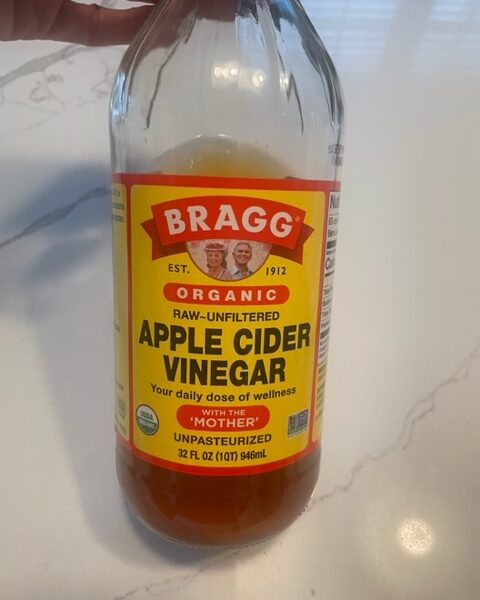The Wellness Industry at a Crossroads
The wellness movement started with good intentions, empowering people to take control of their health through diet, lifestyle, and natural remedies. But over time, it has evolved into a multi-billion-dollar industry with its share of questionable practices, constant selling of their supplements, and some encouraging dangerous protocols. At its best, wellness culture promotes self-care and healthy habits. At its worst, it preys on vulnerable individuals searching for answers that conventional medicine couldn’t provide.
Netflix’s Apple Cider Vinegar highlights this duality with a gripping storyline inspired by real-life events in the wellness industry. It exposes the dangers of misinformation and blind trust in self-proclaimed health experts.
Spoiler Alert: The Plot of Apple Cider Vinegar
The series tells the story of Belle, a popular wellness influencer who rose to fame by promoting natural remedies and alternative healing practices. Claiming to have healed herself from cancer through diet and supplements alone, Belle built a loyal following of people desperate for answers outside of conventional medicine. The twist? Belle was never sick.
Meanwhile, another character, Milla, truly does have cancer. Milla turns to alternative therapies like juicing, ointments, and coffee enemas, ultimately rejecting surgery and chemotherapy. Unfortunately, by the time she seeks medical and conventional treatment, it’s too late.
This cautionary tale is a reminder of how dangerous misinformation can be, especially when it’s wrapped in a polished, influencer-friendly package.
The Rise of Questionable Wellness Gurus
Belle’s story isn’t an isolated incident, it reflects a growing trend in the holistic health and wellness space. Social media has given rise to self-proclaimed health experts with little to no medical training, capitalizing on fear and the mistrust of science and traditional medicine. Some promote extreme protocols for gut health, hormone balance, and detoxification without proper evidence to back their claims.
In recent years, chiropractors and alternative practitioners have increasingly rebranded themselves as functional medicine experts. While many chiropractors are highly skilled at physical therapy and musculoskeletal care, they are not trained medical doctors. Some have stepped outside their scope of practice, offering protocols for serious medical conditions and pushing expensive supplement regimens that promise miraculous results.
One trend I see on Instagram and find it worrisome, is the growing number of spiritual and wellness influencers blending health advice with marketing, pushing protocols and products while promoting their affiliate discount codes. While some genuinely aim to share helpful resources, others create a carefully curated persona of wellness expertise that feels more like a business strategy than a mission to help others.
What starts as “just sharing what worked for me” quickly turns into an empire built on their followers’ trust. But when these influencers are questioned or called out for misinformation or harm caused by their advice, they sometimes respond with defensiveness, controlling the narrative rather than taking accountability. One spiritual influencer recently had her IG followers attack a writer on an IG post who had written an article about her and some other influencers selling their detox products. It also seems a few in the wellness world are up in arms over the Netflix docu-series.
But here’s the thing… it’s not an attack on wellness. It’s an important call for transparency and accountability.
The wellness industry sometimes markets itself as the antithesis of “Big Pharma” or “corrupt healthcare,” yet it’s become just as commercialized and profit-driven. Let’s not pretend this billion-dollar industry is immune from problematic practices. From questionable detox products to fear-based diets disguised as “clean living,” the wellness world has its own share of issues that deserve to be exposed.
It’s important to remember that not everything marketed as a wellness solution is backed by expertise or science. Question the message, but also question the motive. Are they offering solutions, or are they selling something? (Trust me I do get it, I have discount codes too and sponsors and advertisers for my podcast. But you need to know, we get paid when people use our discount codes. I try to only share on my podcast now and I only share 3 products that I actually really use.)
Figures like the Medical Medium, who claims to receive health advice from spirits, have contributed to this trend. While his celery juice protocol went viral, many health professionals have expressed concerns about the lack of scientific evidence behind his claims. Yet, desperate for answers, people continue to follow his advice, often at the expense of their own well-being.
Why I’m Speaking Out
I have NOT always been wary of wellness influencers. For a while, I followed the Medical Medium protocol religiously, believing it would help me heal my anxiety and chronic back pain. It didn’t. Instead, it made me sicker.
Two years ago, during pre-op bloodwork for back surgery, my results showed that my body was in a dangerously acidic state. My nutrient levels were severely deficient, the worst they had ever been in my adult life. That was my wake-up call. I realized the diet I had been following wasn’t right for my body.
What works for one person may not work for everyone. Wellness is not about finding a magic solution. It’s about listening to your body and taking a balanced approach to health.
(I shared more about my journey with the Medical Medium in a previous blog: My Journey With Celery Juice and the Medical Medium Protocols: A Cautionary Tale.)
Key Lessons From Netflix’s Apple Cider Vinegar:
- Wellness Culture Can Be a Double-Edged Sword
Practices like yoga, meditation, and healthy eating are powerful tools for improving overall well-being. They can reduce stress, boost mental clarity, and help us live more balanced lives. But when these practices are promoted as cures for serious medical conditions, or wrapped in fear-based marketing, they can quickly cross into dangerous territory.
- The Medical Medium Effect
The Netflix series draws clear parallels to real-life wellness figures like the Medical Medium. Despite the lack of scientific backing for his protocols, his massive following shows how easy it is to trust someone who promises hope and healing in the face of chronic illness.
- Vulnerability Makes You a Target
People struggling with chronic illness or unresolved health issues are especially vulnerable. When conventional medicine doesn’t provide answers, it’s easy to latch onto someone who claims to have the solution, even if it’s not grounded in truth.
- Fear Sells. But at What Cost?
Fear has become a powerful marketing tool in the wellness industry. Influencers label foods as “toxic,” demonize conventional medicine, and position themselves as the only ones who can save you. But real wellness isn’t about fear; it’s about balance.
It becomes especially concerning when wellness influencers pivot from promoting lifestyle changes to endorsing supplements, detoxes, and expensive biohacking practices. What starts as simple advice to eat more whole foods can escalate into elaborate routines accompanied by promises of “unlocking peak health” or “healing chronic disease naturally.”
These influencers market biohacking as the future of wellness, but the reality is that many of these practices lack scientific backing and are inaccessible to most people due to their high cost. Even worse, some influencers imply that these expensive tools are essential for true health, creating a culture of pressure and perfectionism in wellness. It’s no longer just about eating well and moving your body as it should be, and becomes about doing more, buying more, and biohacking your way to an unattainable standard of health.
Not everything labeled “natural,” “detoxifying,” or “next-level wellness” is safe or necessary. If it starts to feel like a full-time job, or a significant drain on your wallet, it’s time to take a step back and reconsider who you’re trusting for advice. Real health is rooted in balance, not in the latest biohacking trend.
Trust Yourself First
The biggest lesson I’ve learned from my own experience is this: You are your own best advocate. It’s okay to question experts, whether they’re medical doctors, holistic practitioners, or wellness influencers. If something feels off, trust that instinct.
True wellness is slow, intentional, and rooted in listening to your body. It should feel empowering, not overwhelming.
Apple Cider Vinegar is a timely reminder to be discerning about the information you consume. Ask questions. Research qualifications. And always remember, real healing is rarely one-size-fits-all.
Have you watched Apple Cider Vinegar? What did you think? I’d love to hear your thoughts. Let’s keep this conversation going!







